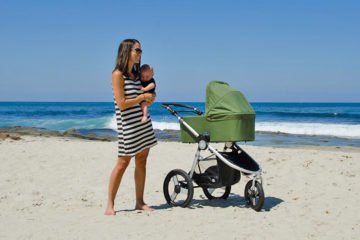This is a question I get asked over and over by pregnant clients. My answer is generally the same. How long is a piece of string? Each pregnancy, each birth experience and each baby is really different: as is my answer to this question.
What about my pelvic floor? This is something that everyone, man or woman, should think about. Women that have been pregnant and have given birth are 80% more likely, than men, to report pelvic floor weakness symptoms, like urinary incontinence. Returning to sport or exercise, especially high intensity, too soon may actually make your pelvic floor weaker and possibly leading to pelvic organ problems and prolapse.
I would always recommend checking with the health care practitioner assisting you with your postnatal period before increasing your exercise regime. However, here are some general tips and hints to help you get back moving after your bub.
Expected timeline: (time post-giving birth)
- 0-3 weeks: gentle walking (get a friend to come along with you!), core and pelvic floor engagement exercises. This may be dependant on your labour, what interventions were used and how your energy levels are.
- 3-8 weeks: Attend your 6 week check up and get the all clear! Continue walking and your core and pelvic floor engagement exercises. At this stage you may also want to add in low intensity and low impact group exercise at the gym (with no or light weights) or the pool for an aqua aerobics class.
- 8-12 weeks: Continue walking and core and pelvic floor engagement exercises. You may wish to add in light weights or increase your weight slightly.
- 12-16 weeks: Now is a great time to touch base with an allied health practitioner with an interest in postnatal care. They will be able to assess your core and pelvic floor stability prior to returning to higher impact and higher intensity exercise.
- After 16 weeks: Return to usual sport activities (prior to or early on exercise during pregnancy) if your pelvic floor has been given the tick of approval and as comfortable. You should have no urinary incontinence or vaginal symptoms. I would recommend to continue to touch base with your allied health practitioner as you increase your exercise back to pre-pregnancy routine.
Food for thought: Be gentle on yourself! It’s more than likely your usual sleep patterns will be disrupted and you may be breastfeeding. This will use up some of your energy reserves and you are more likely to injure yourself and have a recurrent injuries when you are fatigued and stressed.
For more information please do not hesitate to contact the centre or myself.
Christine Fraser
Osteopath
